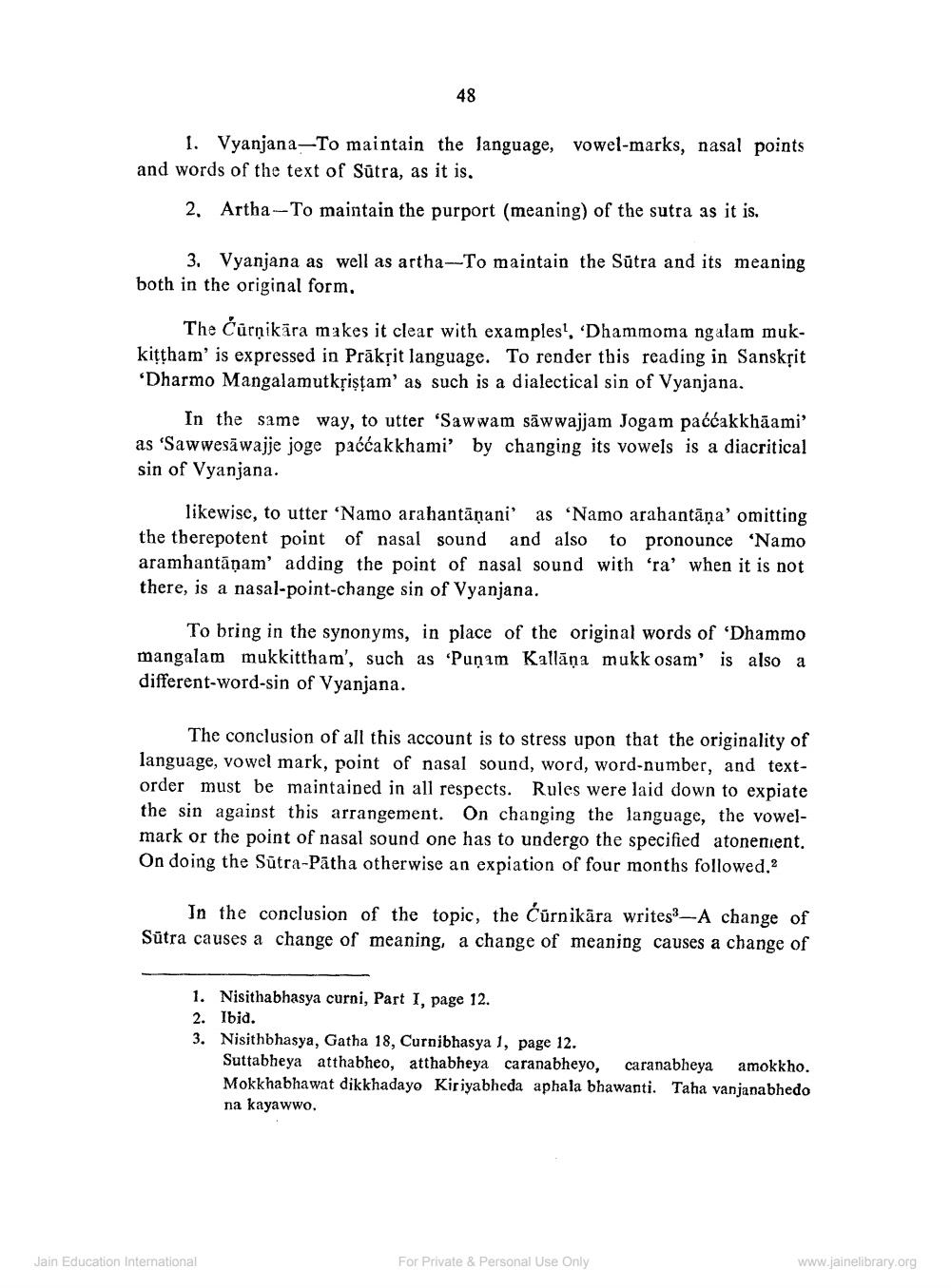________________
48
1. Vyanjana-To maintain the language, vowel-marks, nasal points and words of the text of Sūtra, as it is.
2. Artha --To maintain the purport (meaning) of the sutra as it is.
3. Vyanjana as well as artha-To maintain the Sūtra and its meaning both in the original form,
The Curņikära makes it clear with examples', 'Dhammoma ng alam mukkiţtham' is expressed in Präksit language. To render this reading in Sansksit “Dharmo Mangalamutkțistam' as such is a dialectical sin of Vyanjana.
In the same way, to utter 'Sawwam sāwwajjam Jogam paśćakkhāami’ as 'Sawwesāwajje joge paćčakkhami' by changing its vowels is a diacritical sin of Vyanjana.
likewise, to utter ‘Namo arahantāṇani' as 'Namo arahantāṇa' omitting the therepotent point of nasal sound and also to pronounce 'Namo aramhantāṇam' adding the point of nasal sound with ‘ra' when it is not there, is a nasal-point-change sin of Vyanjana.
To bring in the synonyms, in place of the original words of 'Dhammo mangalam mukkittham', such as 'Puņım Kallāņa mukk osam' is also a different-word-sin of Vyanjana.
The conclusion of all this account is to stress upon that the originality of language, vowel mark, point of nasal sound, word, word-number, and textorder must be maintained in all respects. Rules were laid down to expiate the sin against this arrangement. On changing the language, the vowelmark or the point of nasal sound one has to undergo the specified atonenient. On doing the Sūtra-Pātha otherwise an expiation of four months followed.2
In the conclusion of the topic, the Cūrnikāra writes3-A change of Sūtra causes a change of meaning, a change of meaning causes a change of
1. Nisithabhasya curni, Part I, page 12. 2. Ibid. 3. Nisithbhasya, Gatha 18, Curnibhasya 1, page 12.
Suttabheya atthabheo, atthabheya caranabheyo, caranabheya amokkho. Mokkhabhawat dikkhadayo Kiriyabheda aphala bhawanti. Taha vanjanabhedo na kayawwo.
Jain Education International
For Private & Personal Use Only
www.jainelibrary.org




